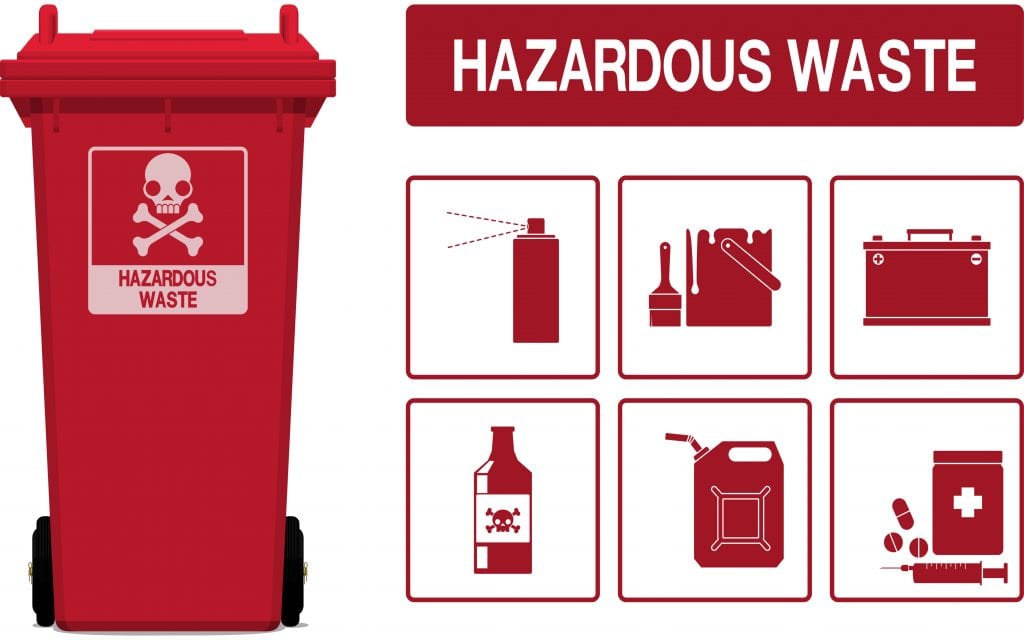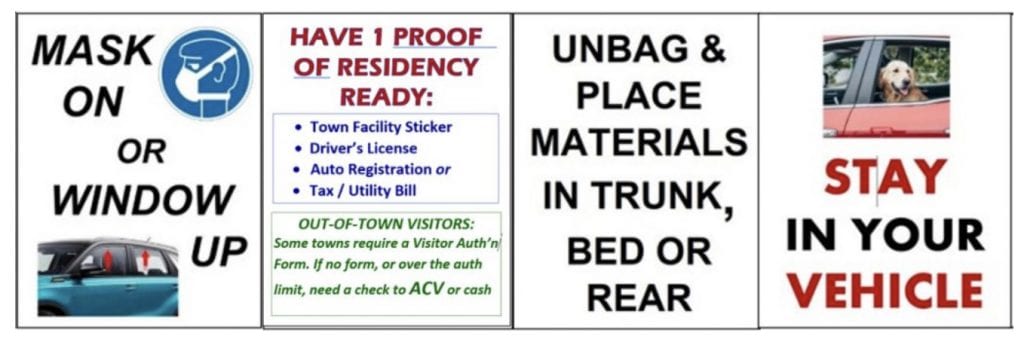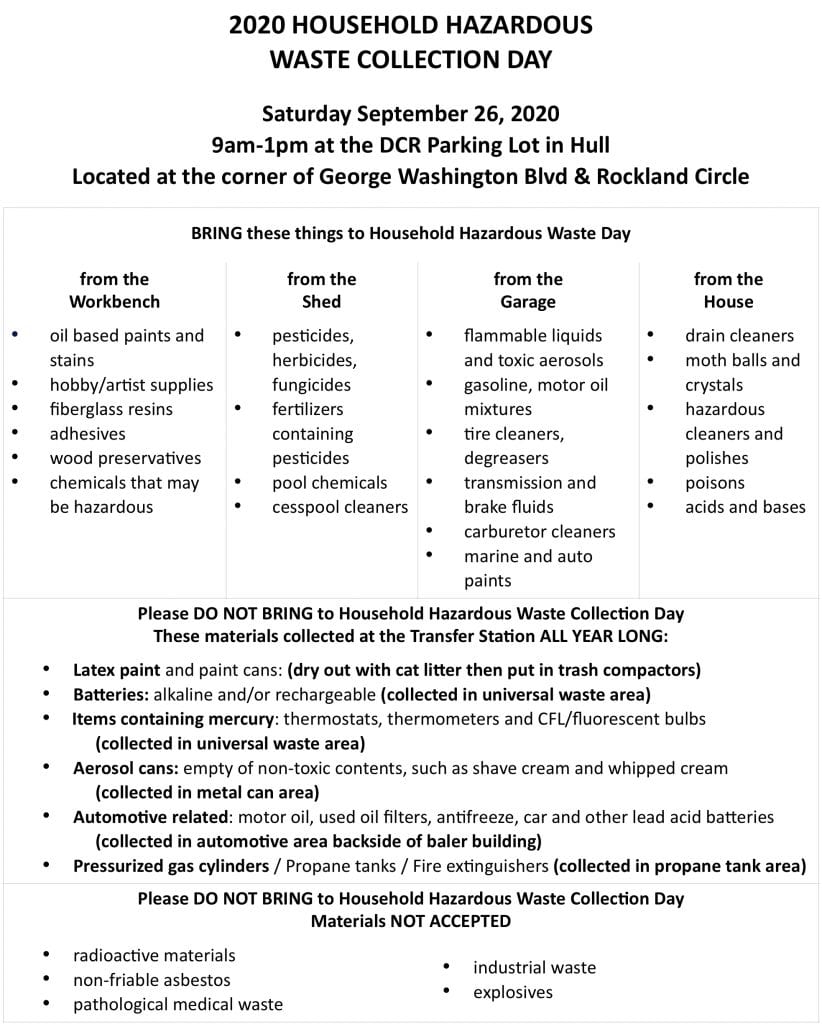
9/21/20 - Submitted by Janice McPhillips For the Cleaner Greener Hingham Committee (officially known as the Long-Range Waste Disposal and Recycling Committee)
Were you one of the many of us around town who did some spring cleaning in your garage, basement, or workshop to prepare for the annual Household Hazardous Waste Day Collection last spring? Well – like so many things that were supposed to happen, that event was cancelled due to the coronavirus pandemic. But here is some good news – the South Shore Recycling Cooperative has scheduled a new date for hazardous waste collection this Saturday September 26th from 9am to 1pm. The collection will be held at the DCR parking lot at the corner of George Washington Boulevard and Rockland Circle in Hull. This event is free for Hingham residents but you must pre-register and bring proof of residency, such as a driver’s license, a tax bill or other identification. All drivers must wear a mask. You can find more information and the link to preregister at the DPW page of the town’s website, https://www.hingham-ma.gov/234/Public-Works.
Wondering what waste is considered hazardous? Any product that is labeled with a warning label that indicates danger, warning, poisonous, corrosive, or flammable should be disposed of as Household Hazardous Waste. Below, you will find a handy one page list. The average U.S. household contains 15 pounds of hazardous products. These items are harmful to human health and the environment if not disposed of properly. The goal of the program is to keep potentially hazardous waste out of sewers and the smoke of waste incinerators. Removing HHW from the home also reduces the chance of exposure and potential injury.
All materials must be in their original containers, placed in a box in the back of your car. The following list includes items that will be accepted at the Household Hazardous Waste collection day on September 26th. HHW items include oil-based paints and stains, hobby or art supplies, fiberglass resin, adhesives, wood preservatives, pesticides, herbicides, fungicides, fertilizers containing pesticides, pool chemicals, cesspool cleaners, flammable liquids such paint thinner or kerosene, toxic aerosols such as spray paint or solvents such as WD-40, wood preservatives, gasoline, tire cleaners, degreasers, transmission and brake fluids, carburetor cleaner, marine and auto paint, drain cleaner, mothballs, and crystals, hazardous cleaners and polishes, poisons, acids and bases.

Please do not bring items to the HHW collection that can be recycled at our Transfer Station. This includes latex paint, batteries of any kind, items containing mercury such as thermometers or thermostats, CFL light bulbs, aerosol cans that contain nontoxic items such as shaving cream or whipped cream, automotive related oils including motor oil, used oil filters, antifreeze, car or other lead acid batteries, and any pressurized gas cylinders, propane tanks, or fire extinguishers. Each of these items are accepted year-round at a specific collection area at our transfer station so please do not bring them to HHW collection day. The only exception to that is latex paint, which is often a source of confusion at HHW Collection Day. Our Transfer Station has a latex paint recycling program where residents can deposit cans of paint that will be remixed and resold. The paint recycling shed is closed in the winter months. Water-based paints must be in good condition, meaning they are not dried out, moldy, or smelly, and the lids must be in good shape, not rusty or corroded. Paint must be in the original containers with labels intact. If this is not the case, take the top off the can and allow it to dry out slowly on its own or by depositing kitty litter, sawdust or shredded paper in the can to absorb any moisture. After the material is dried up, cans may be deposited in regular trash. HHW Collection Day will not accept industrial waste, radioactive materials (smoke detectors may be disposed in trash), pathological and medical waste, pressurized gas cylinders (those can be recycled at our Transfer Station, lead acid automotive batteries (recycle those to the Transfer Station), or explosives such as flares or fireworks (contact the fire department).
Household Hazardous Waste Day is organized by the South Shore Recycling Cooperative, a voluntary association of 16 South Shore member cities and towns. SSRC helps members manage their solid waste programs more efficiently by maintaining a working knowledge of service providers and the most efficient systems available for managing municipal solid waste and recycling. SSRC also provides education to member towns about thoughtful management of waste and recycling while advocating for sensible laws and regulations that accomplish the goal of minimizing waste and cost, and maximizing recovery of useful materials.



